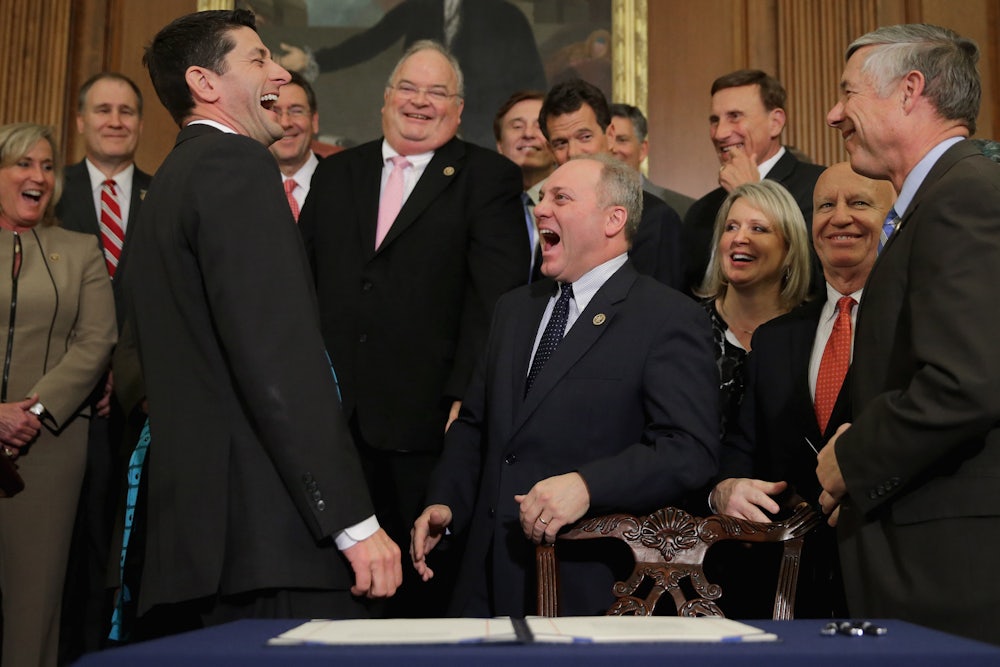Much like the secret plan to defeat ISIS, Trump’s plan to “repeal and replace” Obamacare was entirely fictional—it sounded good, sure, but there was no substance behind the buzz-y facade. Of course, congressional Republicans had been pitching “repeal and replace” for years, without ever presenting a coherent replacement plan. In so doing, Republicans have put themselves between a rock and a hard place—anything short of repeal could turn them into RINOs, but repealing, especially without a replacement, could cost them in the midterm elections because it would affect a lot of their constituents.
Republicans have glommed onto “repair” not because it’s a precise description of what they are planning to do, but because of “death tax” guru Frank Luntz. Luntz told Bloomberg that Republicans should switch from “repeal and replace” to “repair” because it “captures exactly what the large majority of the American people want. ... The public is particularly hostile about skyrocketing costs, and they demand immediate change. Repair is a less partisan but no less action-oriented phrase that Americans overwhelmingly embrace.”
This is the predicament that Republicans are in: Voters don’t want the thing they’ve been promising for six years. And “repair” may be “action-oriented” but right now there’s no action associated with it: Republicans still have no idea what to do about Obamacare. By switching to “repair,” Republicans are at least acknowledging that voters want better health care. But the switch also suggests that they are becoming increasingly unwilling to do anything—especially anything that would jeopardize tax cuts for millionaires and billionaires—about it.
